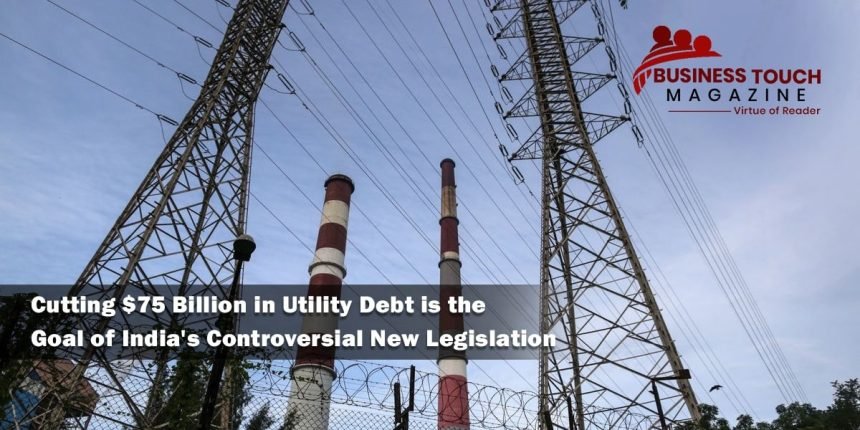Increasing competition and reducing debt at India’s power distribution corporations are on the agenda, but the nation runs the danger of inflaming public discontent in a country where energy is often used as a campaign incentive.
As the main points aren’t yet public, people with knowledge of the matter who requested anonymity said that key proposals include allowing additional utilities to operate in the same circles as well as requiring regulators to set tariffs based mostly on market prices and defining payment procedures and deadlines. As of Aug. 12, the bill will be presented to parliament for consideration during the current session.
Indian officials believe the change is necessary to clear a sector that is critical to the country’s energy transformation goals, but is clogged by $75 billion in debt. Critics argue that the modifications open the door for major businesses to take control the sector, leaving state-owned utilities with consumers who rely on subsidies.
Shailendra Dubey, the head of the All India Power Engineers Federation, an advocacy group that offers vitality coverage recommendations, said, “The day the bill is submitted in the parliament, power sector personnel throughout the nation would go on strike.” In order to benefit from the state’s distribution network, this change simply permits private enterprises to choose and choose the most lucrative distribution circles.”
Emails sent outside of business hours on Friday were unanswered by a representative from the Ministry of Power. With many providers present in one distribution circle, the bill urges regulators to establish a floor and a ceiling tariff.
A lot of state governments guarantee free electricity to entice people to their side in the debate. As a result, politicians pressure regulators to prescribe artificially low rates or local governments neglect to transfer subsidies; money-losing merchants postpone payments to energy turbines and grid operators, undermining your whole supply chain.
Last week, Prime Minister Narendra Modi said that about 2.5 trillion rupees in outstanding bills had to be paid by the states, and asked them to do so. Subsidies are defended by state governments as protecting the interests of low-income populations and small businesses.
In the words of All India Kisan Sangharsh Coordination Committee secretary AvikSaha, “Electricity is a vital commodity that has to be controlled and managed and cannot be given up to the thirst of profit,” the farmers’ lobby has been fighting the bill for months. If the bill is pushed through, he said farmers will revolt.




